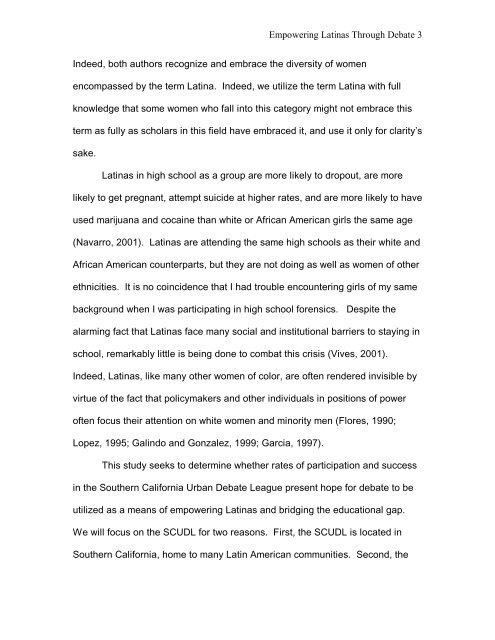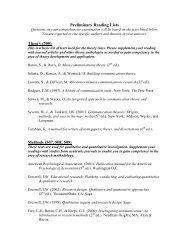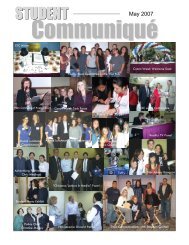Empowering Latinas Through Debate - College of Communications ...
Empowering Latinas Through Debate - College of Communications ...
Empowering Latinas Through Debate - College of Communications ...
Create successful ePaper yourself
Turn your PDF publications into a flip-book with our unique Google optimized e-Paper software.
<strong>Empowering</strong> <strong>Latinas</strong> <strong>Through</strong> <strong>Debate</strong> 3<br />
Indeed, both authors recognize and embrace the diversity <strong>of</strong> women<br />
encompassed by the term Latina. Indeed, we utilize the term Latina with full<br />
knowledge that some women who fall into this category might not embrace this<br />
term as fully as scholars in this field have embraced it, and use it only for clarity’s<br />
sake.<br />
<strong>Latinas</strong> in high school as a group are more likely to dropout, are more<br />
likely to get pregnant, attempt suicide at higher rates, and are more likely to have<br />
used marijuana and cocaine than white or African American girls the same age<br />
(Navarro, 2001). <strong>Latinas</strong> are attending the same high schools as their white and<br />
African American counterparts, but they are not doing as well as women <strong>of</strong> other<br />
ethnicities. It is no coincidence that I had trouble encountering girls <strong>of</strong> my same<br />
background when I was participating in high school forensics. Despite the<br />
alarming fact that <strong>Latinas</strong> face many social and institutional barriers to staying in<br />
school, remarkably little is being done to combat this crisis (Vives, 2001).<br />
Indeed, <strong>Latinas</strong>, like many other women <strong>of</strong> color, are <strong>of</strong>ten rendered invisible by<br />
virtue <strong>of</strong> the fact that policymakers and other individuals in positions <strong>of</strong> power<br />
<strong>of</strong>ten focus their attention on white women and minority men (Flores, 1990;<br />
Lopez, 1995; Galindo and Gonzalez, 1999; Garcia, 1997).<br />
This study seeks to determine whether rates <strong>of</strong> participation and success<br />
in the Southern California Urban <strong>Debate</strong> League present hope for debate to be<br />
utilized as a means <strong>of</strong> empowering <strong>Latinas</strong> and bridging the educational gap.<br />
We will focus on the SCUDL for two reasons. First, the SCUDL is located in<br />
Southern California, home to many Latin American communities. Second, the













